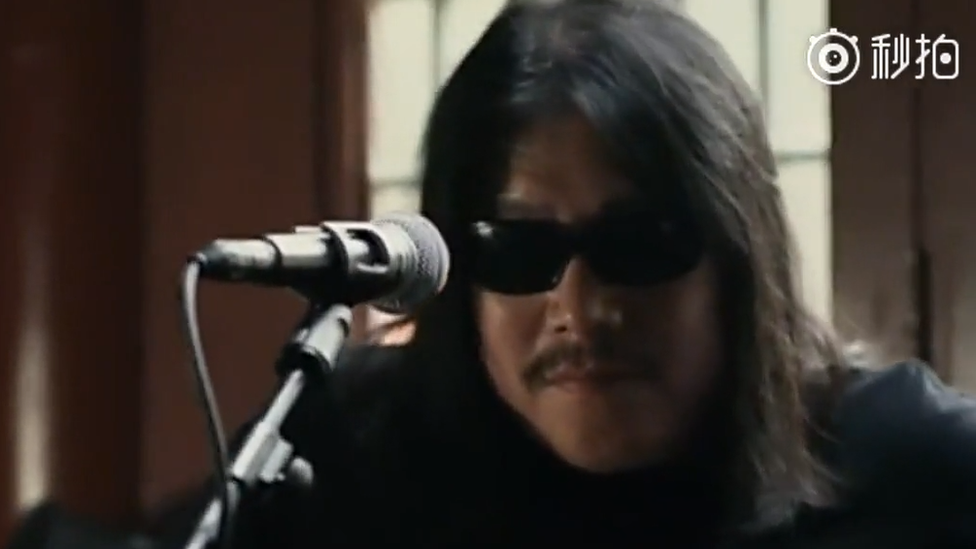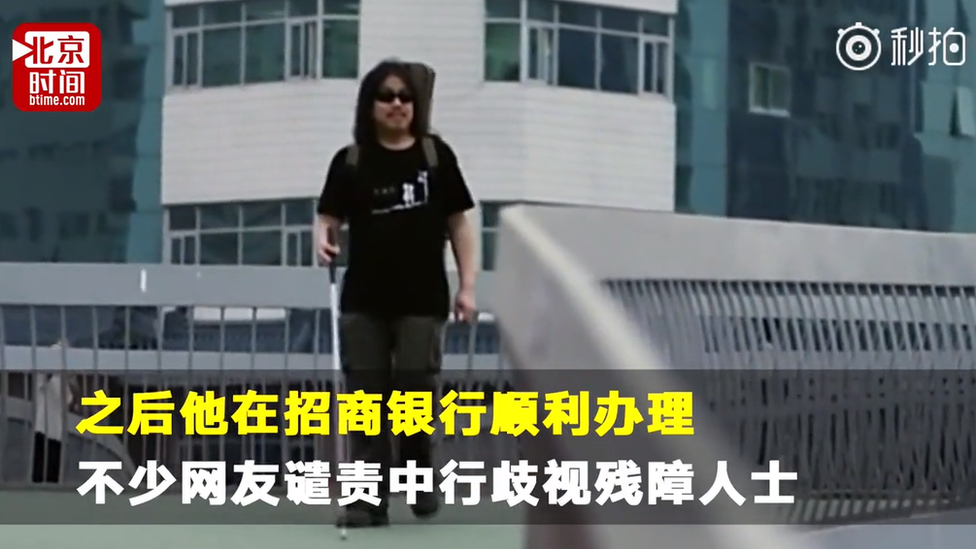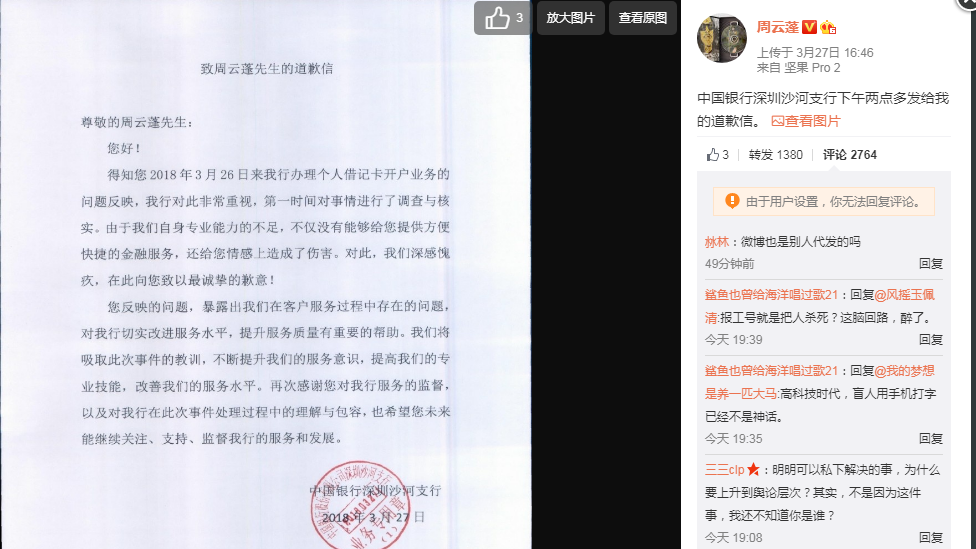China singer denied bank account because he’s blind
- Published

Mr Zhou was repeatedly asked "Can you not see at all?"
A Chinese folk singer has received an apology from a bank after he was denied an account because of his disability.
Zhou Yunpeng is blind, and was told he was not allowed a bank account when he visited his local Bank of China branch in southern Shenzhen.
The bank said it was because he was deemed to be "a person without capacity for civil conduct".
The incident has sparked discussion on Chinese media about whether enough is being done to help the disabled.
Some 85 million people in China have a disability, 17 million of whom are visually impaired.
'Without civil capacity'
Mr Zhou said on 26 March that he already had a personal Bank of China account, and visited the Shenzhen bank to set up a business debit card.
He posted on the popular Sina Weibo microblog that he was repeatedly asked by an unnamed member of staff: "Can you not see at all?"
When he confirmed that he couldn't, he was told that "people without civil capacity cannot be set up" with an account, and was refused further service.
"China's General Principles of Civil Law stipulates that adults (people over the age of 18) are fully capable of civil conduct. I would like to ask the Bank of China why you do not think I have civil capacity," he asked on Weibo.
The official CGTN broadcaster classifies people with no capacity for civil conduct as "those who are mentally unsound and incapable of discretion in their actions".
'Lacks basic common sense'

Many on social media said the incident was discrimination against Mr Zhou
Mr Zhou's post sparked outrage across the country, and prompted shares and comments from thousands of users.
Many said they were "shocked" by the bank's decision, and blamed excessive bureaucracy coming at the expense of basic respect.
"This member of staff lacks basic common sense and courtesy," said one user, receiving more than 2,000 likes for the comment.
Another said that "discrimination against the disabled has gone too far".
Many users called on the bank to make a public apology.
'Experience is not uncommon'

Mr Zhou shared the Bank of China's "sincerest apology" on his Weibo page
Mr Zhou says that he has since received a letter from the regional branch.
The Bank of China says that it is investigating the incident, and the letter offers Mr Zhou "the sincerest apologies" for the way he was treated. It "promises better and more professional services in the future".
National newspaper Global Times highlights that "Zhou's experience is not uncommon in our country", external and recalls an incident in March 2016 where a blind Chinese man was refused a loan at a bank in eastern Wenzhou, Zhejiang province, because he was unable to individually read the terms and conditions.
CGTN says that ATMs in China are all expected to have braille, and that bank clauses and signatures should also be available in braille, so that visually impaired people can use these services by themselves.
However it adds that staff at some banks "may not be familiar with the procedures" for helping people with visual impairments.
'Cold and cruel'
Official Chinese media have published articles after the incident stressing that the Beijing government is continuously doing more to help China's wider disabled community.
CGTN applauds the government's efforts to lift some five million disabled people out of poverty in the last five years, and highlights the Chinese Paralympic curling team's gold win at the 2018 Pyeongchang Games, and how they received a warm welcome home.
But it says that "challenges remain" in helping China's disabled secure the right help.
Lu Yong, president of the China Disabled Persons' Federation, tells broadcaster CCTV that resources and quality of education are still limited for people, particularly in rural areas.
"There are 2.8m registered disabled people who still live in poverty," Lu says. Of China's 85 million disabled people, 70% live in rural areas.
One Weibo user has revisited a 2016 article on the idaxiang.org website, which asks: "Why is it that developed countries offer friendly and convenient places for vulnerable people and yet Chinese society is so cold and cruel?"
BBC Monitoring, external reports and analyses news from TV, radio, web and print media around the world. You can follow BBC Monitoring on Twitter, external and Facebook, external.